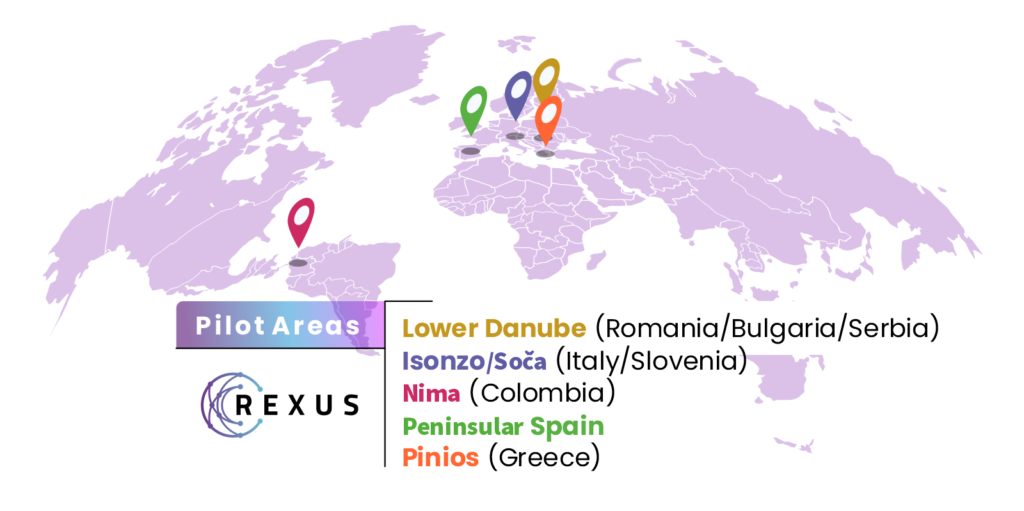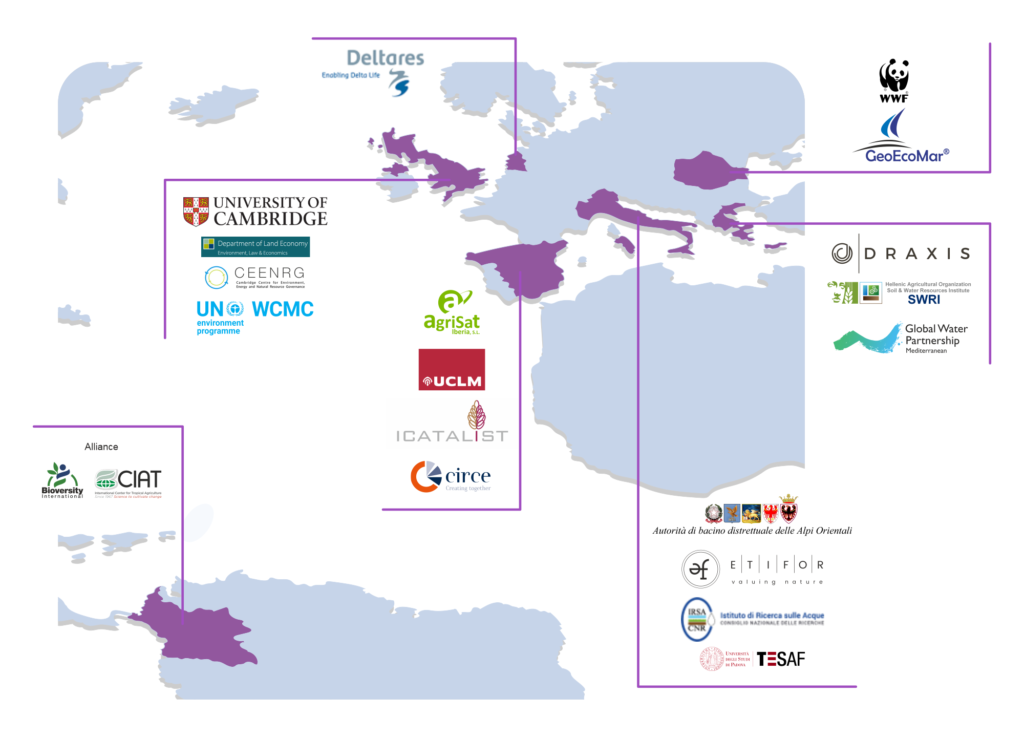The REXUS project
MANAGING RESILIENT NEXUS SYSTEMS THROUGH PARTICIPATORY SYSTEMS DYNAMICS MODELLING
EU Horizon 2020 Project
Rexus aims to develop and validate knowledge and tools to facilitate the transition from NEXUS Thinking to NEXUS Doing.
Awareness of the dynamic interdependencies between the Water, Energy and Food sectors has grown in recent years, along with the realisation that purely sectoral viewpoints cannot lead to sustainable solutions. Growing demand for resources create trade-offs, which are complicated by the impact of climate change. The Water-Energy-Food Nexus approach is a powerful concept for addressing the interrelationships of resource systems and moving towards better coordination and utilisation of natural resources, taking into account existing trade-offs and moving towards synergies. However, progress in terms of incorporating Nexus thinking in practical policymaking has been slow.
The Rexus Project aims to close the gap between science and policy, moving from Nexus thinking to Nexus doing. It brings together the scientific tools and the integrated vision necessary to analyze real-world conditions, including frictions and climate risks. By employing Systems Dynamic Modelling, it is designing sustainable and actionable forward-looking solutions that increase resilience across sectors. These solutions, clearly visualised, will form the basis of forward-looking and participatory decision making.

Rexus theory of change:
Rexus builds on the premise that the shift from Nexus theory to practice will come through:

Explore the REXUS Work Packages.
5 Rexus Pilots
In 5 pilot cases in Europe and Latin America, Rexus will activate inclusive Nexus partnerships, in the form of Learning & Action Alliances. They will provide the testing ground for the integration of methods, including thematic biophysical modelling using Earth Observation, environmental cost valuations, natural capital and carbon accounting, as tools to explore case-specific challenges. In response to these challenges, Ecosystem-based Adaptation measures will be planned for these regional and transboundary systems. The aim is to develop shared visions and adaptive Nexus Management Strategies to inform policymaking.
Impact
The Rexus Project will contribute to the following outcomes:

A Consortium of 17 Partners
The Rexus Project is realized by a Consortium of 17 partners, bringing together a wealth of scientific knowledge and experience in Water-Energy-Food-Ecosystems-Climate scientific analysis, stakeholder engagement and assistance to policymaking. See the full list of REXUS parters.
